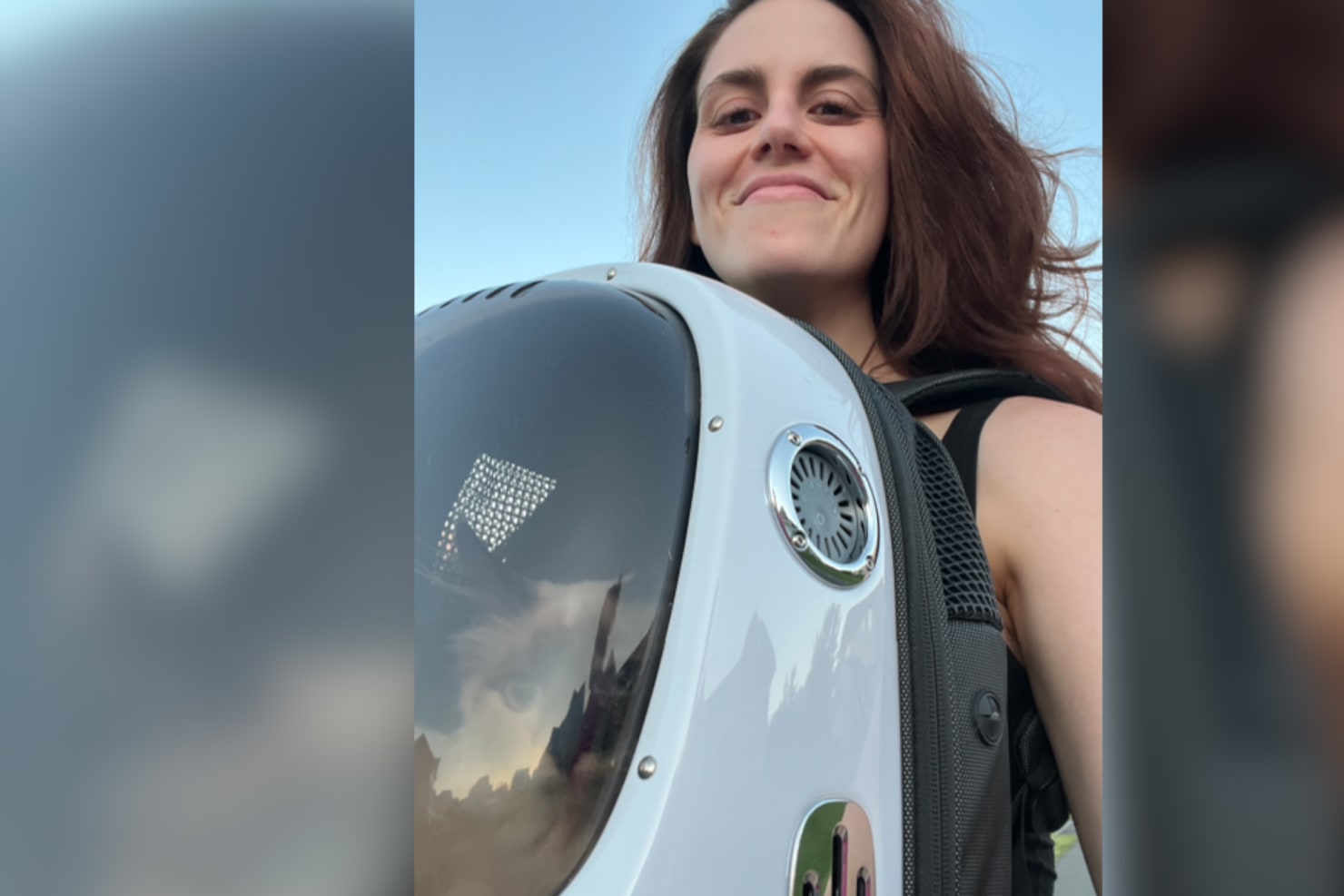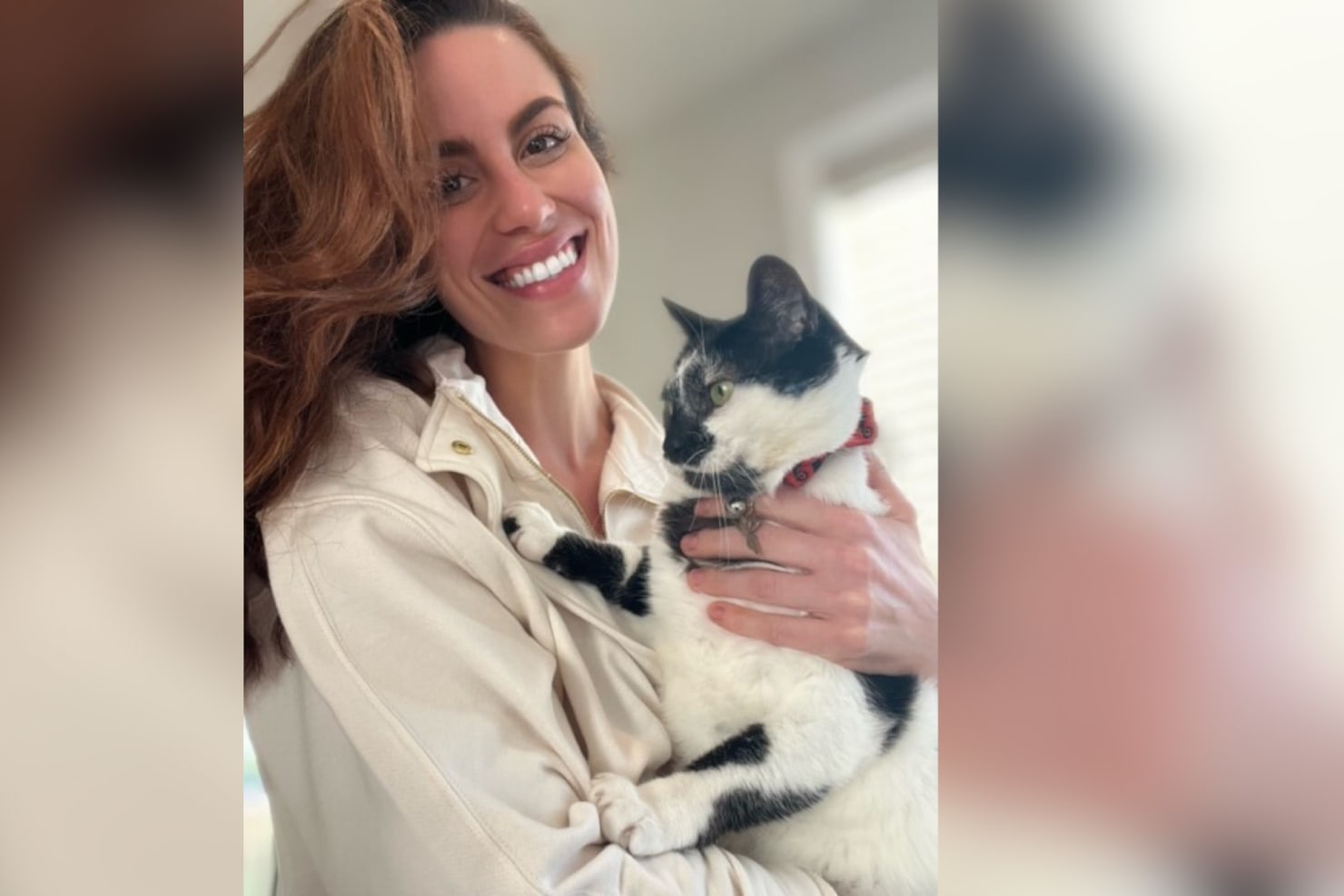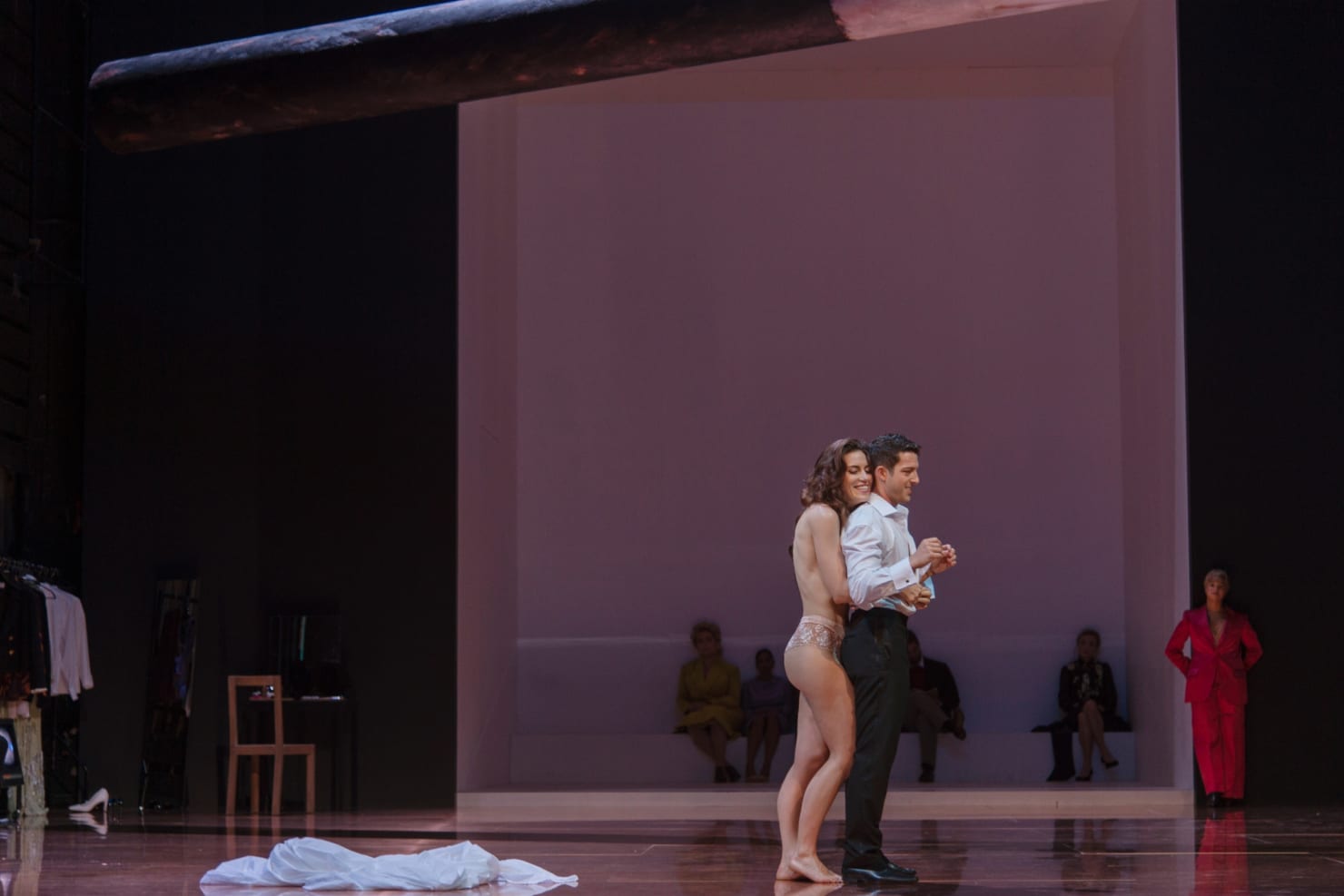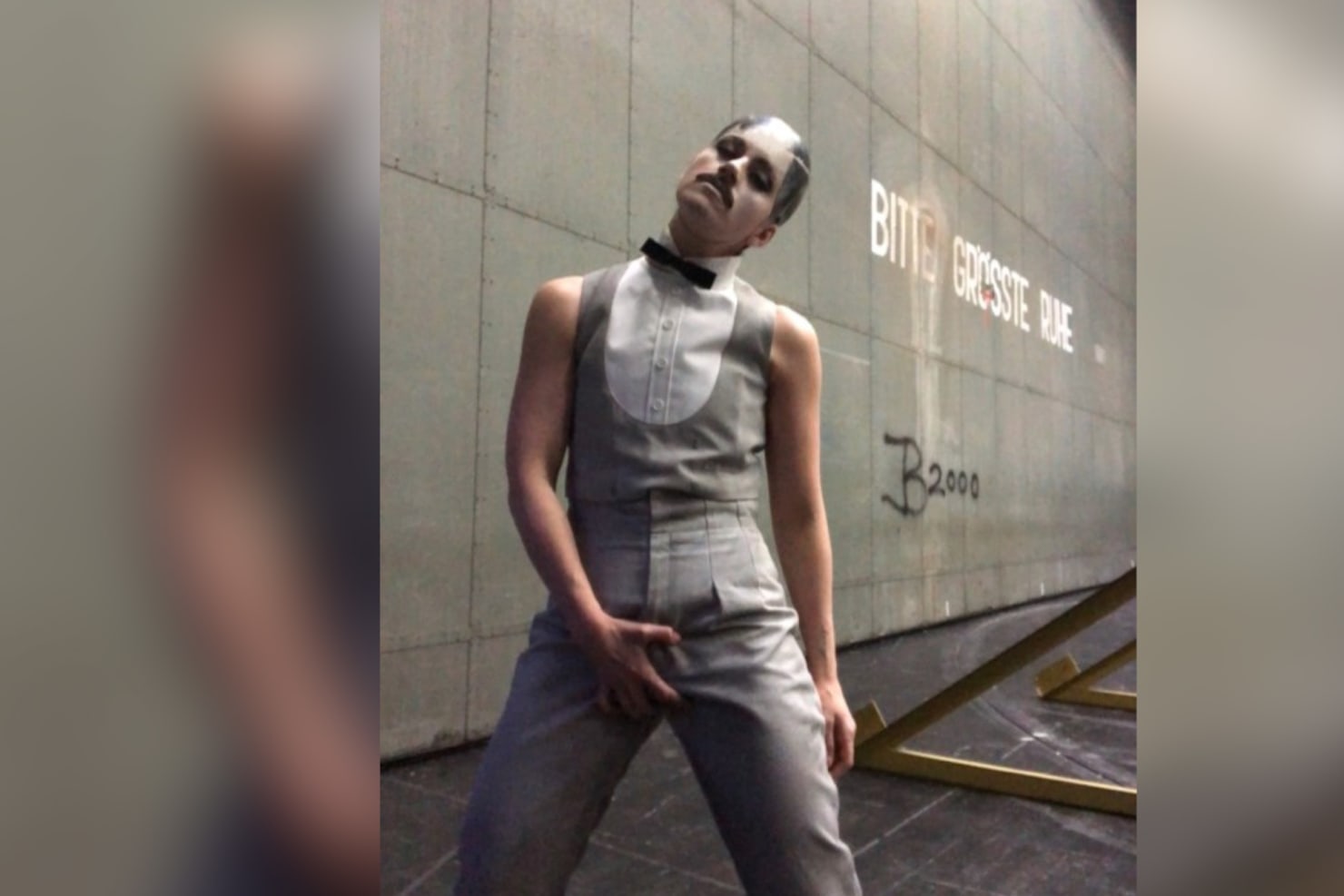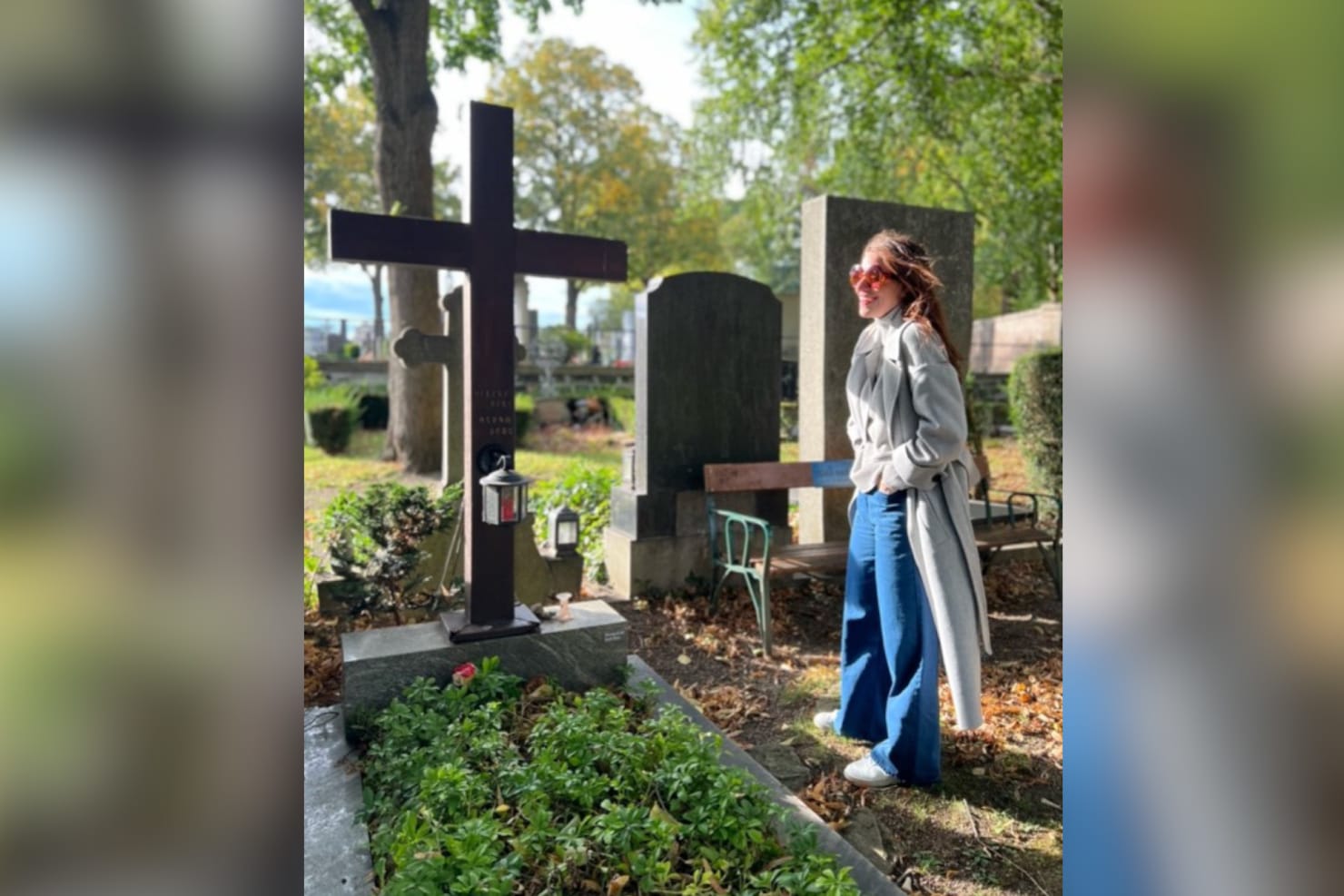Q&A with Soprano Jacquelyn Stucker

It's not every week that the Minnesota Orchestra's programming features repertoire with a vocal soloist—much less, vocal repertoire from early 20th-century Vienna. When one thinks of Austrian composer Alban Berg, who was known for combining the Romanticism of the late 19th century with the 12-tone compositional technique developed by his teacher Arnold Schoenberg, one might think of his opera Wozzeck, not the lesser-known songs with more traditional harmonies he wrote in his teens and orchestrated later in his life.
American soprano Jacquelyn Stucker makes her Minnesota Orchestra debut with Berg's Seven Early Songs. It's the first stop on her busy 2022-23 season, which includes debuts with the Philadelphia Orchestra and the Oslo Philharmonic. We talked to her about life, art, singing, Berg, astrology, cats and lots more. Get to know Jacquelyn and grab your tickets to see her perform alongside guest conductor Sir Donald Runnicles on October 13-15.
Tell us a bit about yourself–personally and professionally.
Personally, the most important thing to know about me is my Big Three: Leo Sun, Libra Moon, and Leo Rising. Please try not to hold any of that against me.
More seriously, I’ve read everything David Foster Wallace has ever written (“I do things like get in a taxi and say, ‘To the library, and step on it.’”), I spend too much money at Aritzia, I can quote most of Ace Ventura: Pet Detective at will, and I am lactose intolerant. I also really like cats, and I have a tripod cat that I like to take around with me in a space backpack.
Professionally, I was a Jette Parker Young Artist at Covent Garden, so most of my musical life is based abroad even though I am American. I sing a lot of Baroque music (see photo below for a snap of me as the eponymous character this summer in L’incoronazione di Poppea at Festival d’Aix-en-Provence), but I also like to dabble in certain kinds of Romantic German music because I am a total Alban Berg stan.
You’ve got a major role coming up: Pamina in Mozart’s The Magic Flute at Royal Opera House at Covent Garden. What’s it been like preparing for such a big role?
Pamina is, in terms of opera roles in my repertoire, the “one that got away”: I’ve nearly performed her twice but those debuts were both postponed, so I am absolutely jazzed to finally step into her shoes. Preparing it over a period of three years has been luxurious, as it’s given me time to see other productions, visit and revisit different dialogues, and work with an acting coach to try to find a cohesive and authentic portrayal of this character that makes sense for the person and actor I am.
What does this role mean to you?
I think the thing to remember about Pamina—and about Die Zauberflöte as a work—is that there are incredibly modern themes up for discussion therein: there are portrayals of race that are positively shocking when considered at face value today, two main characters actively contemplate suicide, and the Queen of the Night most certainly would be diagnosed with clinical narcissism by any psychologist today.
So, what does this role mean to me? It’s what all roles mean to me, really: they’re an opportunity to—in the safe, make-believe space of theatre—dissect some of the uglier parts of life so that each of us can imagine and work towards a better future. I don’t think anything in life—least of all the performing and visual arts—should exist in a vacuum: singing Pamina—in addition to doing things like volunteering for my local Democratic party, doing whatever I can to mentor young musicians, and donating as much as I can afford to the British Lung Foundation (the charity closest to my heart)—is just one of the ways I get to participate in a larger social conversation about the ways we might, as a society, leave the world better than we found it.

What is it like singing with an orchestra?
It is terrifying and exhilarating in equal measure. I don’t exactly know how to reduce the experience into words, but I can try share what it feels like: it’s like riding a roller coaster as a child with one of your parents; it’s like going away to college; it’s like having your first passionate kiss with someone you really fancy.
In a gesture of vulnerability, I’ll share that I never quite feel good enough, experienced enough, deserving enough to work with orchestras at this level. In addition to the Minnesota Orchestra, I’ll make my debuts this season with the Oslo Philharmonic and the Philadelphia Orchestra—it never feels familiar working with world-class ensembles such as these, but I suppose it’s this feeling that keeps me going back to the practice room, thinking about text obsessively, and racking my senses to find something new, something fresh in each score I prepare.
I guess what I’m trying to say is this: working with an orchestra is transformative every single time. I have been singing professionally for about a decade and I keep waiting to feel accustomed to it, and I still haven’t felt anything short of grateful awe the moment an ensemble begins to play. I am continually spellbound, and I always leave those first orchestral rehearsals feeling a little closer to whatever it is that makes us human.

What can audiences expect from the Berg songs you’re singing? What should they know before they come to the concert?
Audience members—particularly if they’re into astrology like I am—should know that Alban Berg was an Aquarius, and I think this kind of tells a person everything they could possibly want to know about Berg’s approach to composition. Berg was, as a musician, innovative (in how he married atonality with lyricism), he was exceptionally sensitive (in his discerning approach to selecting texts to set), and expressive (in the sense that every musical idea, gesture, and reference is significant—nothing he wrote is superfluous, and all of it plays into the gross architecture of the work). Classic Aquarius energy, right?
For audience members that are not astrology aficionados, allow me to propose a few metaphors that relate specifically to why experiencing these seven songs is totally worth it.
These songs are like a slice of Prantl’s Burnt Almond Torte: complex and satisfying without being cloyingly rich.
These songs are like watching Vertigo or Inception for the first time: you’re emotionally overhung even before the final masterstroke of the work, and each moment is just so consummately and thoughtfully crafted in terms of its technical elements that you’re left wondering, “Another human being—that also burps and farts and cannot, like, spell the word Wednesday correctly without saying, “Wed-Nes-Day” under their breath—actually made this incredible thing that has me reeling right now?!”
These songs are like the SKIMS Soft Lounge Long Slip Dress: really, really hard to come by (because they’re programmed rather infrequently and that dress is constantly sold out) and kind of perfect for you no matter how you (think you) look (or feel).
These songs are like watching Vertigo or Inception for the first time: you’re emotionally overhung even before the final masterstroke of the work…”
Berg’s Seven Early Songs, or Sieben frühe Lieder, are in German. How do singers train and prepare to sing in other languages? What does your own process look like? Do you have a favorite language to sing in?
I won’t speak for all classical singers, but I generally feel uncomfortable singing in languages I don’t at least speak (or understand) passably well. To wit, most of my repertoire is in English, Italian, and German: I’m a native English speaker, my mother’s family immigrated to the U.S. from Italy (so, I grew up absolutely saturated in that language), and I started seriously learning German in my late twenties. I wouldn’t say I’m gifted with languages by any means; I’m just insatiably curious.
I have always liked words, and I would say that 80% of my preparation of any work is solely text-based. I spend a lot of time working with native speakers, and I find a lot of value in digging into the text as much as possible. I like to have both a literal word-for-word translation and a poetic translation for anything I sing, and I also like to know how the verbs are conjugated. Connotations of words or phrases, idioms, syntax and rhyme are all important information when it comes to delivering the text, and there’s a high barrier of entry to this information if you aren’t a native speaker. It takes time, but it’s worth the work.
Once I have a semantic understanding of the text, I speak the text in a variety of different ways: I whisper it, I scream it, I say it with a Boston accent, I say it in a monotone, I say it as quickly as I can, I say the words in backwards order, and I translate it extemporaneously into colloquial, modern English. I realize this all probably sounds insane, but this visceralization of the text gives me tons of ideas about inflection and intention, and it intimately connects my speaking voice to my singing voice early in the learning process—and, I’ve never, ever forgotten the words during a performance when I’ve prepared this way.
The “tl;dr” version of all of this is that I prepare roles with a Wittgensteinian bent: if the limits of the language available to me are the limits of my musical world, I will do pretty much anything to exist in a world without limits.
It’s not every program that the Orchestra shares the stage with a singer. Why should orchestra fans come see a vocal work?
This is going to be a seditious-adjacent answer.
Because earnestly engaging with the world–with art, nature, food, relationships with other people, spirituality–is the only antidote to the inherent meaninglessness and boredom of daily life in consumerist America. I could blather on all day about how excellent Berg’s music (which I personally think is true) is or about how what "Art" is really all about is connection (which I also think is true)–or whatever; but, Truth is a sphere and its horizon is infinite.
So, you know, I could never confidently or accurately circumscribe what the value of seeing a vocal work would be for fans of orchestral music; but, whether a person wants relief, engagement, or entertainment, the only way to get any of those things is to take a sincere interest in what other human beings are creating and let it provoke you a bit.
With that in mind, hearing some Berg (and then throwing down at Volstead’s Emporium after the show on the 14th, because I reserved a table and that’s where I’ll be after curtain if anyone wants to say "hi") is a pretty good place to start.
Whether a person wants relief, engagement, or entertainment, the only way to get any of those things is to take a sincere interest in what other human beings are creating and let it provoke you a bit.”

Related Articles

Meet the Musicians
Minnesota Orchestra Musicians Around Town
When Minnesota Orchestra musicians aren’t at Orchestra Hall, you can find many of them around the Twin Cities and beyond in other types of musical performances.

Meet the Musicians
A Q&A with Music Innovator Wordsmith

Meet the Musicians
Meet a Musician: Eric Sjostrom

Meet the Musicians
Musicians Shout Out Their Teachers

Meet the Musicians
